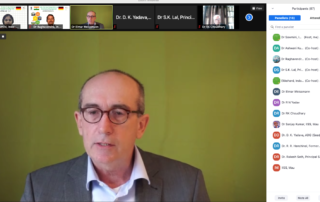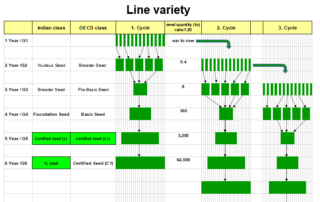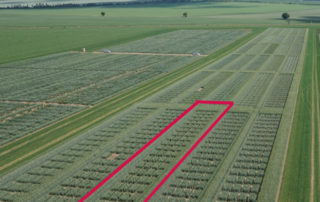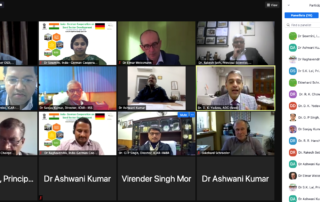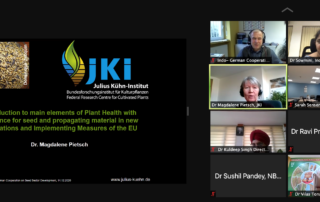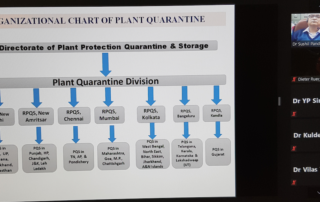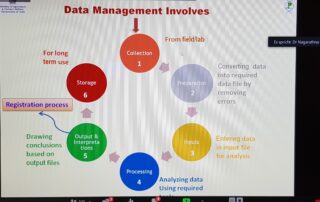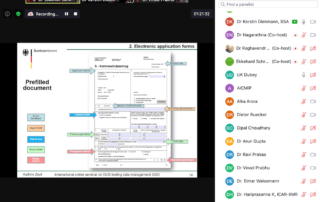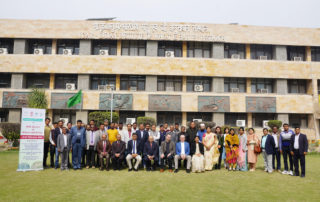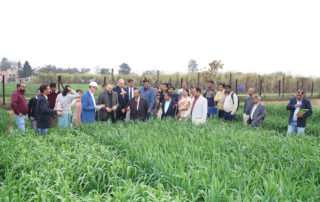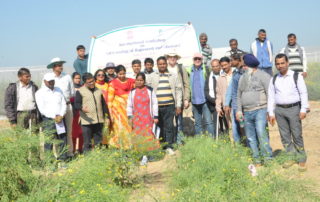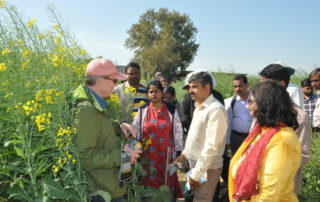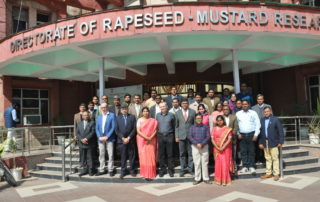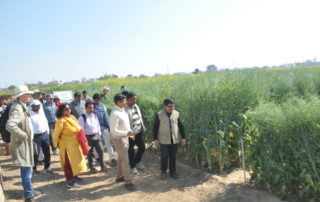International Webinar on “Capacity Building on Seed Production – Northern Zone”
The project “Indo-German Cooperation on Seed Sector Development” is part of the bilateral cooperation programme of the German Ministry of Food and Agriculture (BMEL) and implemented by the consortium of ADT Project Consulting GmbH (ADT) and German Plant Breeders’ Association (BDP). The objective of this bilateral cooperation project is to strengthen the Indian seed sector and to facilitate the cooperation of Indian and German institutions in the seed sector.
In accordance to the regional priorities of seed production, an International Webinar on “Capacity Building on Seed Production – Northern Zone” was successfully conducted between January 12th – 14th, 2021 in cooperation with DAC&FW, Ministry of Agriculture and Farmers Welfare, Govt. of India & Indian Council of Agriculture (ICAR)- Indian Agricultural Research Institute Regional Station, Karnal, Haryana, India. During this capacity building program, the most important seed crops of Northern zone were selected i.e., Mustard, Wheat & Barley.
The aim of this webinar was to exchange experiences & views between experts of India and Germany on various aspects involved in seed production. More than 80 Officials from Seed Department of DAC & FW, MOA, GOI, Officials of State Department of Agriculture, National Seed Corporation, State Seed Corporation, Private Seed Industry associations (NSAI & FSII), ICAR institutes, SAU’s etc. have attended this webinar & participated in active discussions.
A team of well experienced national and international trainers from public and private sector covered various topics during this webinar which include:
- Indian seed industry: Current trends and future perspectives;
- Overview in Seed Production System in Germany/ EU with focus on Wheat & Barley;
- National seed system and policy implementation in India;
- Latest Trends in Seed Production of Wheat & Barley in Germany/ EU;
- Seed production and supply systems in India;
- General principles and practices of seed production;
- Maintenance of Varieties and Seed Production of Wheat, Barley and Mustard;
- Hybrid seed production methodologies of Wheat, Barley and Mustard;
- Regulatory framework for seed quality assurance in India.
All speakers from India and Germany provided excellent presentations and information on the topics above. Many other participants actively participated and contributed to fruitful discussions during Q & A Sessions on all the three days.
